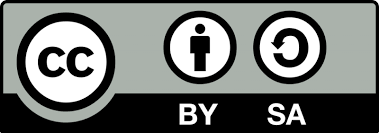Key points to design a training plan for the Education Inspectorate in Spain
DOI:
https://doi.org/10.23824/ase.v0i29.608Downloads
Abstract
Today, education inspectors require more general training and specialization in order to adequately carry out their positions. The quality in training of inspectors in Spain has fundamentally fallen in public administrations and this, in the context of the different Spanish regions, has contributed to different results without a determined standard. In order to better understand this problem and elaborate on the present article, we have analyzed all the current regional regulations related to the organization and operation of the Education Inspector services. At the root of this analysis, we conclude with a series of key proposals that allow the public administrations to design up to date permanent training plans, which are relevant and effective for the Inspectors.
References
Álvarez, C. (2016). Retos en la formación de directivos de Educación Secundaria en Cantabria. En J. Bernal (Coord.), XIV Congreso Interuniversitario de Organización de Instituciones Educativas (pp. 42-47). Zaragoza, España: Dpto. de Ciencias de la Educación, Universidad de Zaragoza. Recuperado de: http://www.unizar.es/cce/documents/CIOIE.pdf
Camacho, A. (2017). Empowering Education Inspectorate in Spain: a real challenge. Conferencia leída en la British Educational Leadership, Management and Administration Society, BELMAS 2017 International Conferernce, Stratford-upon-Avon, Reino Unido, 8 julio.
Camacho, A. (2014). Funciones y quehaceres de los inspectores de Educación en Baleares. Un estudio de casos. (Tesis doctoral). Departamento de Didáctica y Organización Educativa, Universidad de Barcelona.
Camacho, A. y Rodríguez Bravo, M. (2017). La autoridad de los inspectores de educación: auctoritas y potestas. Avances en Supervisión Educativa, (27), pp. 1-19. DOI: https://doi.org/10.23824/ase.v0i27.585
Camacho, A. y Rodríguez, M. (2017b). La Inspección educativa influyente: un reto para la Administración educativa. En J. Bernal (Coord.), XIV Congreso Interuniversitario de Organización de Instituciones Educativas (pp. 257-265). Zaragoza, España: Dpto. de Ciencias de la Educación, Universidad de Zaragoza. Recuperado de: http://www.unizar.es/cce/documents/CIOIE.pdf
De la Orden Hoz, A. (1985). Formación de Inspectores de Educación. Ponencia presentada al I Simposium Europeo sobre Inspección Educativa, en Actas, pp. 39-42. Madrid: USITE.
Imbernón, F. (2007).10 ideas clave. La formación permanente del profesorado. Nuevas ideas para formar en la innovación y el cambio. Barcelona: Graó.
Lorente, A. y Madonar, M. (2006). La formación permanente de los inspectores de educación: realidad, retórica y futuro. Avances en Supervisión Educativa, (3), pp. 1-13. https://avances.adide.org/index.php/ase/article/view/219
Mayorga, A. (2000). La Inspección educativa. Madrid: Santillana.
Ministerio de Educación, Cultura y Deporte (2013). LOMCE. Ley Orgánica 8/2013, de 9 de diciembre, para la mejora de la calidad educativa. (BOE, 10 de diciembre). Recuperado de: https://www.boe.es/diario_boe/txt.php?id=BOE-A-2013-12886
Pavón, A. (2010). La supervisión educativa para la Sociedad del Conocimiento. Madrid: La Muralla.
Serrano de Haro, A. (1970). Deontología del Inspector de Enseñanza Primaria. Madrid: Paraninfo.
Soler Fiérrez, E. (2015). Decálogo de las competencias profesionales del inspector de educación. REICE, Revista Iberoamericana sobre Calidad, Eficacia y Cambio en Educación, 13(4), pp. 149-160. Recuperado de: http://www.rinace.net/reice/numeros/arts/vol13num4/art9.pdf
Soler, E. (2004). Una función inspectora no reconocida: la mediación en los conflictos escolares. Revista de Ciencias de la Educación, (198-199), pp. 209-226.
Soler Fiérrez, E. (coord.). (1992). Fundamentos de supervisión educativa. Madrid: La Muralla.
Tébar, F. (2017). Mejorar la calidad de la inspección educativa. Supervisión 21, revista de educación e inspección, (44), pp. 1-19.
Teixidó Planas, M. (1997). Supervisión del sistema educativo. Barcelona: Ariel.
How to Cite
Issue
Section
Published
Keywords:
educational inspection, permanent training, training of inspectors, SpainLicense

Attribution Share-Alike CC BY-SA
Those authors who have publications with this magazine, accept the following terms:
A) The authors will retain their copyrights, which will be simultaneously subject to the Creative Commons Attribution License that allows others to re-mix, modify and develop on your work even for commercial purposes, provided they credit you And to license their new works under the same terms.
B) The authors will retain the rights of exploitation of the intellectual property of this work, and especially the rights of reproduction, distribution, transformation in any of its modalities and public communication of said work, which will be simultaneously subject to the License Of recognition of Creative Commons that allows others to re-mix, modify and develop on your work even for commercial purposes, provided they credit you and license your new works under the same terms.
Creative Commons Attribution-ShareAlike 4.0 International Public License

